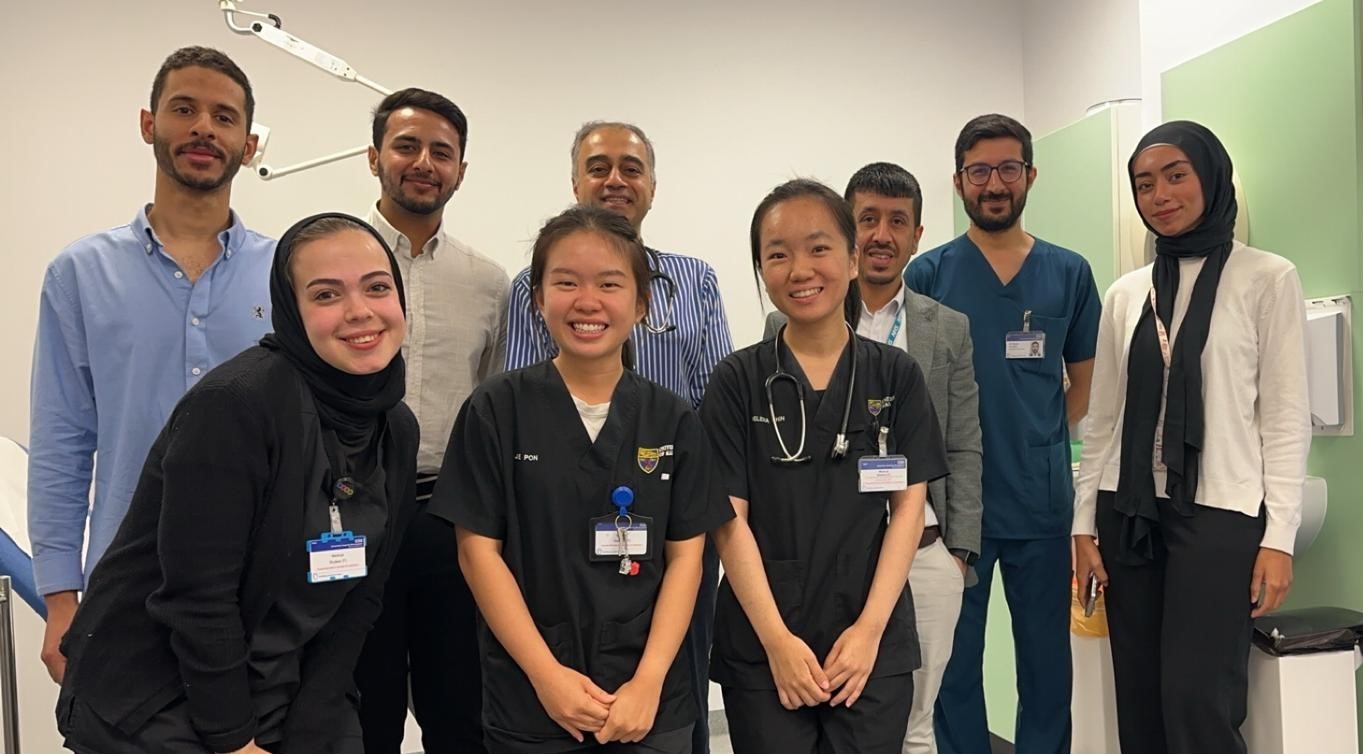
Arabian Gulf University Medical Students Participate in Training Course at Queen Elizabeth Hospital
Arabian Gulf University
08 Sep, 2024
Medical students at the Arabian Gulf University (AGU), Mr. Mohammed Bouhamoud Al Qahtani and Mr. Qusai Al Dandan, have successfully completed a training course organised by Queen Elizabeth Hospital in Birmingham, alongside fellow medical students from around the globe.
Mr. Al Qahtani, a student at the College of Medicine and Health Sciences, described the experience as highly enriching, stating that they learned extensively under the guidance of Prof. Suhail Khan, who oversaw the course throughout an intensive three-week training period, focusing on heart disease patients with a variety of medical conditions.
He stated: “During my training journey, the opportunity to work with esteemed specialists in cardiology was a period rich in knowledge. Moreover, we gained insights into numerous aspects of medical ethics and patient interaction, thanks to Prof. Suhail Khan, who instilled in us a sense of pride in being part of his training medical team. He has a unique ability to train novice doctors from different countries, given his extensive experience as a senior lecturer at the College of Medicine, University of Birmingham.”
Mr. Al Qahtani noted that he worked closely with his colleague Mr. Al Dandan from Saudi Arabia, as well as with several medical students worldwide. Together, they examined patients suffering from heart muscle weakness and failure, congenital heart defects, underwent catheterisation, heart transplants, and other related ailments. They participated in patient assessments and clinical examinations, studied the medical histories of the cases they encountered, and engaged in group discussions on each specific case. Additionally, they attended surgical procedures for catheterisation and open-heart surgery, observing firsthand how new life can be given to patients in need of heart transplants.
In conjunction with participating in routine daily assessments of heart patients—be it in emergency situations or regular check-ups—the training participants gained insight into the hospital’s mechanisms for patient preparation before, during, and after surgery.
Mr. Al Qahtani addded: “We witnessed several impressive catheterisation procedures. Among the most remarkable surgeries I attended with the professional doctors who provided our training was the aortic valve replacement for a young man in his thirties, who had suffered for years since childhood. Furthermore, we attended outpatient clinics with Prof. Suhail Khan, which gave us exposure to a plethora of diverse medical cases.”
